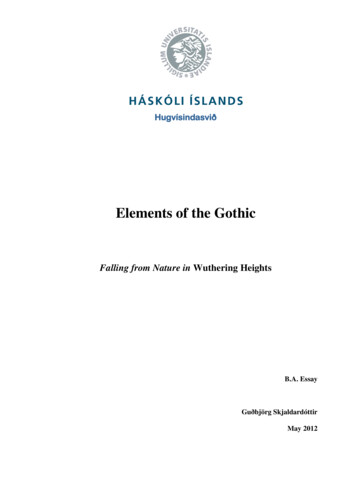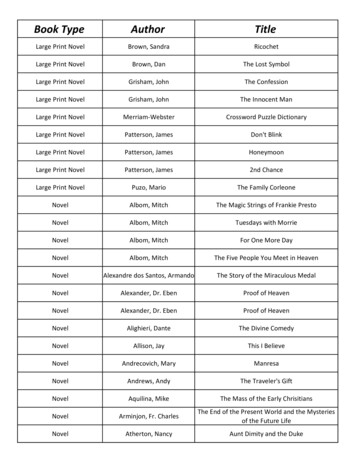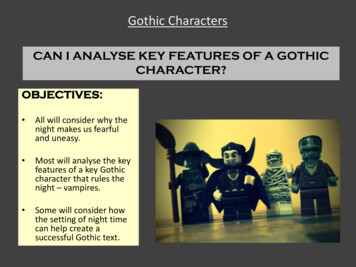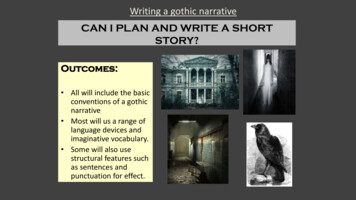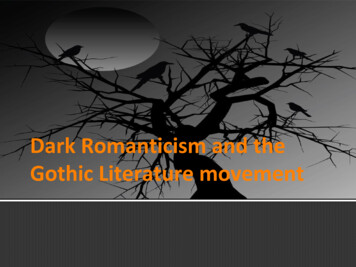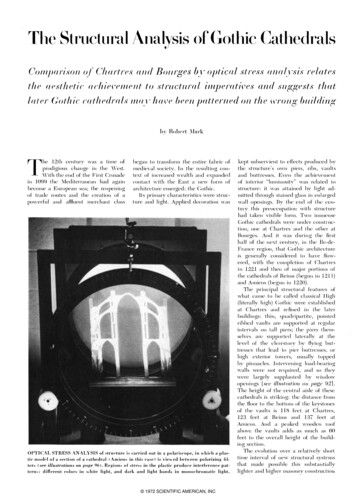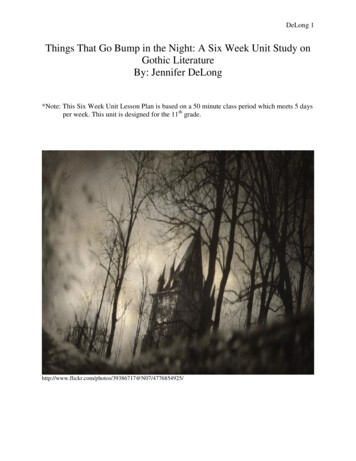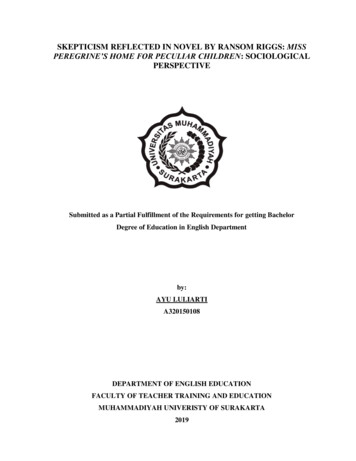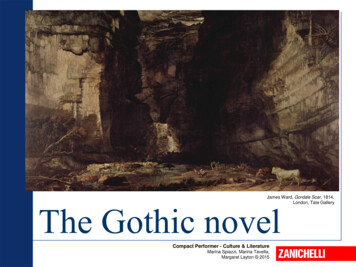
Transcription
James Ward, Gordale Scar, 1814,London, Tate GalleryThe Gothic novelCompact Performer - Culture & LiteratureMarina Spiazzi, Marina Tavella,Margaret Layton 2015
The Gothic novel1. The origin of the name and popularityThe Gothic novel came to popularity at the end of the 18th centuryand it was also influenced by the concept of the sublime.The adjective ‘Gothic’three connotationsMedieval, linkedto the architectureof the 12th-14thcenturiesIrregular,barbarous,opposed toClassicismWild, supernatural,in the sense ofmysteriousThe first writer to apply the term to literature was Horace Walpole.Compact Performer - Culture & Literature
The Gothic novel2. The Gothic setting (see page 106) Great importance given to terror,characterised by obscurity anduncertainty, and horror, caused by eviland atrocity. Darkness, a necessary ingredient forthe mysterious, gloomy atmosphere(the most important events are set atnight).Compact Performer - Culture & Literature
The Gothic novel2. The Gothic setting Ancient settings: isolated castles andmysterious abbeys with hiddenpassages, underground cellars, secretrooms. Catholic countries as the setting for themost terrible crimes, due to Protestantprejudices against Catholicism. Complex plots.Compact Performer - Culture & Literature
The Gothic novel3. The characters Supernatural beings: vampires, monstersand ghosts. Heroines dominated by exaggeratedpassions and fears, and persecuted byvillains. Sensitive heroes: they save heroines. The villains: satanic, terrifying malecharacters, victims of their negativeimpulses.Henry Fuseli (Johann Heinrich Füssli),The Nightmare, 1781, Goethe Museum,Frankfurt
The Gothic novel4. The languageGothic writers chose vocabulary that referred to emotions and feelings, capable ofevoking anxiety, fear or horror.Semantic areasWordsMysteryenchantment, ghost, haunted, infernal, magic, secret, spectre,visionFear / Terror /Sorrowagony, anguish, apprehensions, despair, dread, fearing,frightened, hopeless, horror, melancholy, miserable, panic,sadly, scared, shrieks, sorrow, tears, terror, unhappy,wretchedHasteanxious, breathless, frantic, hastily, impatient, running,suddenlyAngeranger, enraged, furious, rage, resentment, wrathLargenessenormous, gigantic, large, tremendous, vastCompact Performer - Culture & Literature
The Gothic novel5. First Gothic authors Horace Walpole The Castle of Otranto (1764), with the subtitle“A Gothic Story”, he was the first to apply the word “Gothic” toliterature. Ann Radcliffe The Mysteries of Udolpho (1794) Mary Shelley Frankenstein (1818)Compact Performer - Culture & Literature
The Gothic novel6. Popularity Great interest during the 18th century common to all social classes These novels wanted to provoke fear in the reader, showing whatthe irrational side of our minds can do (very Romantic idea, opposedto the Enlightenment). Gothic novels influenced today’s ghost and horror novels and films. Other important authors influenced by the Gothic novel are: Charlotte Brontë Edgar Allan Poe Robert Louis Stevenson Bram StokerCompact Performer - Culture & Literature
The Gothic novel The Gothic novel came to popularity at the end of the 18th century and it was also influenced by the concept of the sublime. Compact Performer - Culture & Literature The adjective ‘Gothic’ three connotations Medieval, linked to the architecture of the 12th-14th cent
